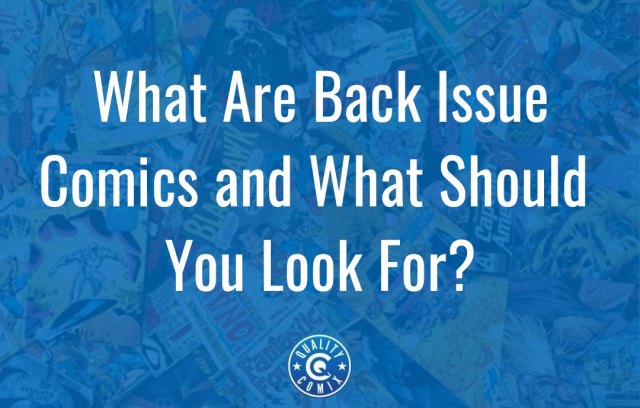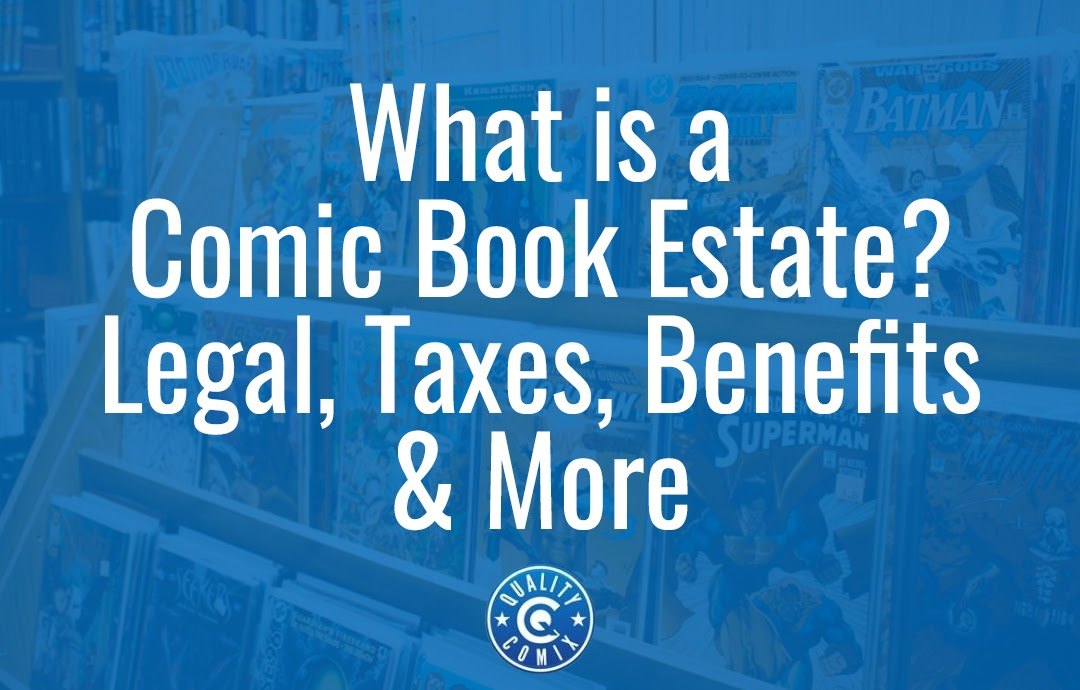
The term "estate" has a defined legal meaning, so when it comes to comic books, it can apply in two different ways.
An estate, in common law terms, is defined as a person's assets, money, possessions, property, and legal rights to property that they possess. It's everything you own and have a right to possess. Usually, the term estate is used for this sum total of things a person owns when they die, though it can technically be used before a person dies, and can be carried on by a family as a person's legacy after their passing.
What does any of this have to do with comics? As mentioned, there are two ways it can apply.
Table of Contents
The Estate of a Creator
When it comes to media properties and intellectual property rights, these, too, are part of an individual's estate. In American copyright law, intellectual property is copyrighted to the original creator, and unless the creator divests themselves of the IP in some way – like selling the rights to it or putting it in the public domain – they hold the copyright for their entire life.
More than that, though. Due to the actions of companies that want to hold onto their intellectual property – most notably Disney, championing extensions of the copyright protections for decades to protect the mouse – copyright actually lasts for 70 years after the death of the creator.
So, if a comic creator copyrights their characters and the IP they're in, that creator controls the characters and how they can be used for their life, and their estate – the people in charge of their assets after they pass – can continue to carry forward that control for up to 70 years after the fact.
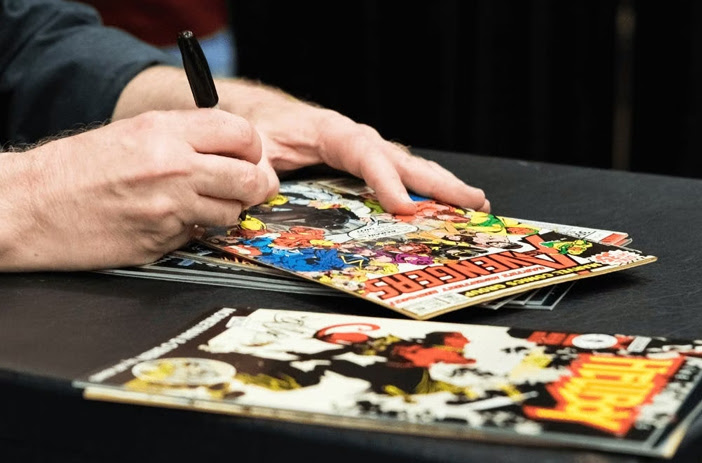
This didn't always happen, though. For example, Stan Lee is famously on record as being "heartbroken" that he never copyrighted any of the now-iconic characters he created; Marvel has always owned those IPs. Stan Lee's estate, which has had a number of problems, doesn't have that to worry about.
Other comic creators may have been more proactive, or maybe not. Many times, the publishers buy the rights to the characters so they can have numerous authors and illustrators create their stories, especially so that they don't have to worry about getting estates involved in the creation of new media.
All of this is the less common and less important of the two ways the term estate is used in comics, which is why I wanted to get it out of the way first.
Estate Comics
The second definition of estates when it comes to comics is the more temporal and physical definition. An estate is all of the possessions a person has or, more often, had when they died. An estate sale is the liquidation of that estate, converting property into money, which is significantly easier to deal with.
So, when you see "estate comics" crop up somewhere, it basically means "a set of comics formerly owned by someone who has now died, and are being sold."
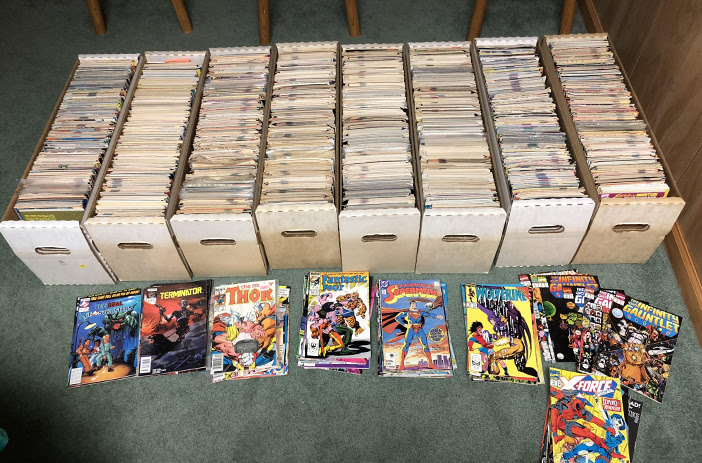
Here's an example. Bodnar's Auctions has this page, which was an auction of several estates of silver-age comics. Those comic collections were broken up into lots, usually with themes, and auctioned for the benefit of the family of the deceased. The lots ranged from piles of 50+ DC, indie, or more modern comics that sold for less than $1 per issue all the way up to more themed and curated lots with a key that sold for $500+.
That's just one of many, many examples. You can find estate collections at estate sales in person, on eBay and Craigslist, on auction sites, and anywhere else people find to liquidate the possessions of their loved ones once they pass.
Is There Anything Special About Estate Comics?
Probably one of the biggest questions you might have about estate comics is why they have a special name. What makes estate comics different from any other lot or collection you find to buy online?
On the face of it, there's no tangible difference. Practically speaking, though, there are a few that might be important, especially if you're a collector, speculator, or flipper.
The estate might not know how to value what they have. Much of the time, when someone who collected something passed on, there are really only two results. The first is that if the descendants of the deceased liked the same items, they'll just inherit the collection and keep it as part of their own. The second is that the descendants don't know or care about the collection – or there may not even be descendants, and the estate is handled by a third party – in which case the comics get sold.
This means that, in many cases, when estate comics are being listed for sale, it's by people who don't necessarily know what comics are worth beyond the fact that they're worth anything at all. It's often possible to make deals that can turn out deeply in your favor. They want to get something, anything, monetary from it; you want to flip the comics for a profit. Both parties can be satisfied.
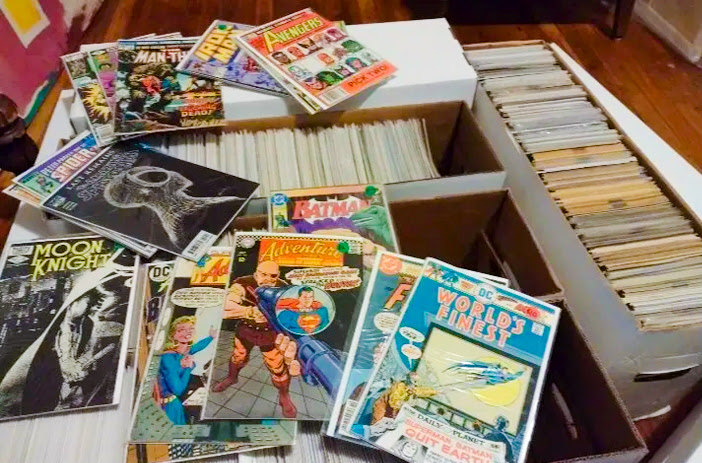
There may be ungraded comics that, when graded, could be more valuable. A lot of the time, when estate comics hit the market for sale, they're vintage collections of golden or silver age comics that the owner never necessarily took seriously. While we think of grading valuable comics as an expected part of the hobby today, CGC was only founded in 2000; people who collected comics in the 40s, 50s, and 60s may have simply put those collections in a binder or a box, set that box carefully aside, and never really touched them again.
Now, I've discussed before whether or not grading comics will increase their value. Often, the answer is yes, though the actual amount can vary. Old gold or silver age keys can dramatically increase, especially if they end up graded at a high-quality level. Others might break even when you factor in the cost of grading. Still, it can be worth it if you find vintage keys or other valuable books in an estate collection.
You may find unusual specimens or high-quality copies of old comics otherwise well-preserved. It's the dream, isn't it? Finding Action Comics #1, Detective Comics #27, or some other high-value key in someone's attic? That's the dream of every estate hunter: finding the jackpot and winning the lotto in someone's old collection they had no idea was worth anything. The ethical flippers split the proceeds; others keep it to themselves.
All of this together means that hunting through estate collections – or just buying the whole collection and hoping to hit the jackpot – can be a great way to speculate and turn a profit.
Estates and Pedigrees
Another way an estate collection can, sometimes, be relevant is through the concept of pedigrees. Pedigree collections are special collections of comics that are noteworthy in some way, either because the person who collected them was especially important or noteworthy, or because the collection itself is exceptional in some way.
99.99% of the time, an estate collection you find has more or less zero chance of being a pedigree collection. It has to be something truly exceptional (not just one valuable book in a pile of chaff) to be worthwhile. CGC only recognizes 61 pedigree collections. Maybe you find the 62nd! More likely, though, you don't. You can read more about what it means to be a pedigree collection on CGC's page here.
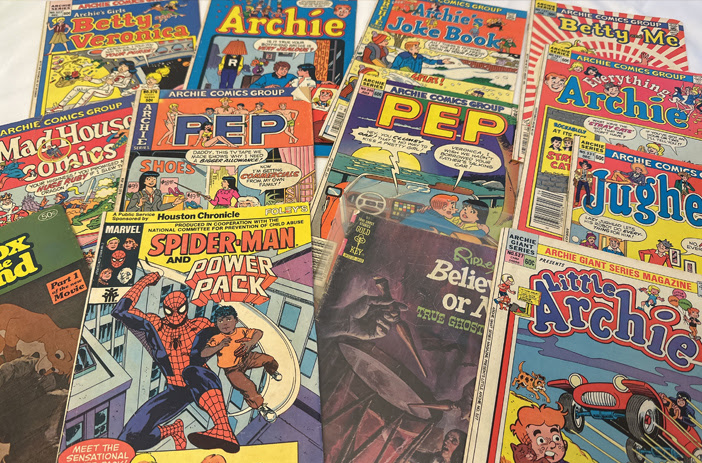
Basically, the criteria are:
1: The collection must be from the original owner. You can't assemble a collection yourself and call it a pedigree collection; it has to have been collected in situ and over time by the original owner to be considered.
2: It must be made of vintage comics. CGC doesn't consider anything more recent than the 70s to be worthy of being a pedigree collection. Until relatively recently, it was golden age only; even silver age didn't count.
3: It must have at least 1,000 comics in the collection. Some of the pedigree collections had over 10,000 books. Smaller pedigree collections need to be very noteworthy in some way, such as including very rare comics or key material outside of comics that adds value to the context of the collection.
4: The collection must be high-grade. CGC puts the floor at 9.2 for silver age books, and golden age isn't specified, but it still has to be high. A bunch of damaged books aren't going to be a pedigree, no matter how rare and valuable they otherwise are.
So, the chances of you stumbling upon a pedigree-worthy collection in an estate are pretty slim. Never zero, though!
How to Shop for Estate Comics
Estate comics can be found in two main ways: online through various auction and sales platforms like Facebook marketplace or Craigslist or offline through in-person estate sales. Obviously, online platforms have a wider reach and a greater chance of finding estate collections to buy. On the other hand, you have more competition, and people who are savvy enough to list estate collections online are also savvy enough to do at least a little research to see if anything they have is really valuable.

So, in-person sales tend to be better. Even then, you have to deal with estate sale services who are seeking valuable items to pull aside themselves, or at least know what everything is likely to be worth, and to charge a premium for it. Private individuals and families tend to be the best if you can find comics at those estate sales, which you frequently won't.
At the end of the day, really, if you intend to flip items and spend your time visiting estate sales, your best bet is to familiarize yourself with a variety of different collectables and valuable items like silver, so you can identify something of value almost anywhere you go. Otherwise, you're going to spend most of your time striking out, and it isn't going to be worth it.
Are There Benefits to Estate Comics?
Other than hoping to luck into valuable comics to resell or the vanishingly rare chance of a pedigree collection surfacing, no, there's not.
Legally, comics as part of an estate are just like any other item a person has as part of the estate. A comic book is no different than a butter dish or a game console; it's something a person owns that has some amount of value and can be sold off to turn the item into cash for the family.
Estates, in general, may have a tax associated with them when they pass on to descendants. It's unlikely that a comics collection is going to count or trigger that tax, though; estate taxes at the federal level don't kick in until the value of the estate is over $13.61 million dollars, and most states don't have a state-level inheritance or estate tax at all. Those that do still set thresholds of at least a million dollars, and a comic collection is going to need to be very significant for it to bump an estate up that much.
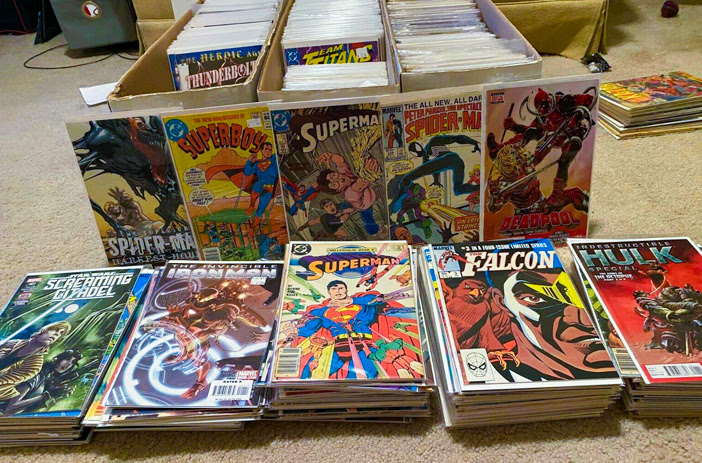
As a buyer, estate comics are just comics, except the situation surrounding them might give you a bit more opportunity for speculation and flipping. As a family member who inherited a comics collection and has to manage the estate, though, you have a choice to make.
Do you keep the collection?
Do you sell it?
If you choose to sell it, how do you go about it? You can list everything individually on eBay, but that's very time-consuming work and requires learning a lot about the hobby. You can break it up into lots and let the auctions sort it out, though that's still a lot of work.
We offer you another option. As one of the biggest dealers of high-end comics, we're always on the lookout for opportunities. If you click here, you can fill out a simple form with a basic description of what you have (and some pictures to help us along), and we'll give you a free, no-obligation evaluation, probably with an offer to go along with it. And who knows; maybe you have something life-changing on your hands?



